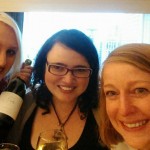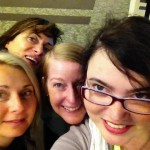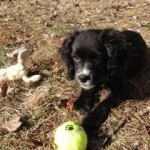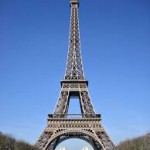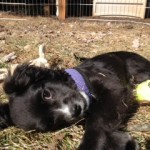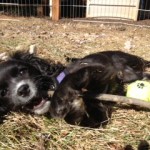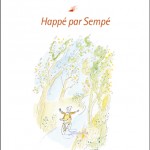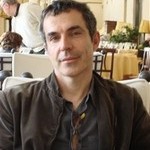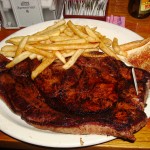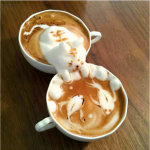I pulled out Geoffrey Wolffe’s Duke of Deception, and the man sitting next to me on the plane asked, “AWP?”
“How did you know?”
“You’re reading a real book,” he said. “Only writers do that.”
He was reading a real book, too: an anthology of flash fiction by Dinty Moore. He needed to finish it for his panel the next morning. Would I come?
I wasn’t surprised to find someone going to the same venue as me. So were more than 12,000 other people. The annual conference of the Association of Writers and Writing Programs in Seattle drew a record number of participants this year: writers, teachers, and students. Neophytes, Nobel laureates, and everything in between.
In the space of the five-hour flight, I learned my seatmate’s life story. He told me about his precocious three-year-old daughter and bitter divorce-in-progress. Friends more experienced than I had warned me that AWP would be overwhelming. So many people, I’d get lost in the crowd. But I was already making connections and I wasn’t even there yet. How hard could it be?
Once I landed in Seattle, I got a text from my friend A., who was going to share a taxi with me. “I met two people on the plane,” she said. “OK if they come with us?” The party was already starting.
A.’s new friends had cajoled a limo driver into taking us to our hotels for $15 each. And that is how I landed in the first limo of my entire life.
The limo dropped us off at an alternate universe, where literary greats like Tobias Wolffe and Jess Walters were afforded the celebrity usually given to rock stars. My two roommates met me in the lobby, where we shared beers and I bumped into a poet friend I’d known since I was nineteen. This serendipity would keep happening, with such a density of writers per square foot unmatched on any other place on the planet. I staked out my corner, reunited with friends, and saw how a mega conference can actually be warm and cozy.
Of course, it was dizzying, too. Half a dozen simultaneous readings and panels beckoned in each time slot. I chose mostly memoir, panels on the ethical dilemmas of writing about your father, writing about a subject who is missing, writing about your children, and writing about others. The panelists seemed to be speaking directly ro me, addressing all the technical and moral issues I’ve been wrestling with in in my book. How do you write about someone you know so little about? How do you recreate scenes you weren’t there to witness? How do you arrive at the emotional truth without throwing anyone under the bus?
I also attended a sprinkling of panels on publishing trends, publicity, and journalism and went to an off-site brewery where many of my MFA pals read from new work. Then, in a headline event, Barry Lopez, in his imitable wise way, reminded us that writing, at its best, is about engagement with social and environmental issues.
I had the two most fabulous roommates. See their blog posts on the conference
and
here.
In the picture above, we are toasting Tabitha’s essay acceptance, which she received in person at the exhibit hall.
My exhibit hall highlight was stopping by the Pleiades booth and talking to Phong Nguyen, the journal’s editor. When I told him I was expanding my Pleiades story into a novel, I learned that the journal has a history of launching novels. Zachary Mason published the story that turned into the novel The Lost Books of the Odyssey in Pleaides and Bonnie Jo Campbell’s title story for American Salvage appeared first in that journal, too.
While my roommates were crashing famous authors’ after-parties and sampling whale blubber smuggled over by Alaskan indigenous writers, I was fast asleep. But I did squeeze in a little late-night dancing, as well as an early-morning stroll along the water and a visit to the flagship Starbucks and the city market.
I’d heard so many verdicts about AWP before I came. “It’s a blast.” “It’s competitive.” “You’ll get lost.” “You’ll find exactly what you want.” I realized, on my way back, that there are more than 12,000 AWPs. We each have our own.
